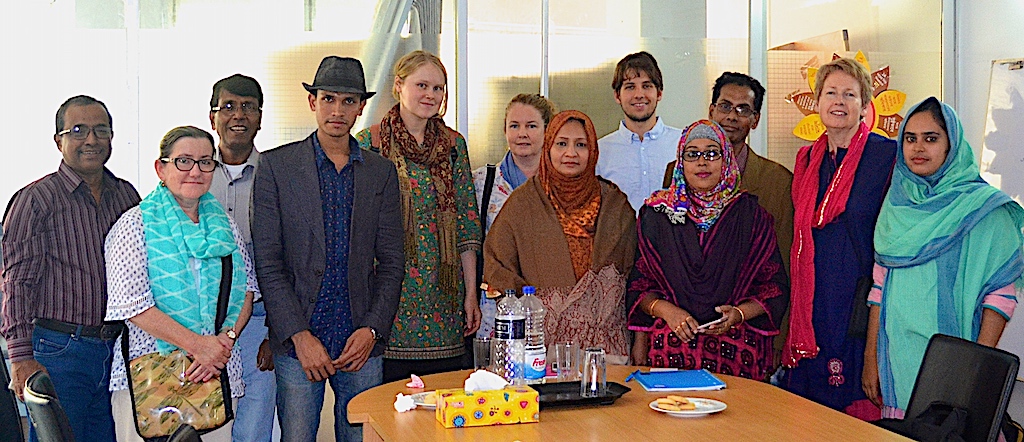Designing a new HIV program for Bangladesh

One of Fulcrum Aid’s objectives is to be able to respond quickly and efficiently when we hear of an opportunity to interrupt extreme inequality. However sometimes it just doesn’t work that way. The exploration of a program to support HIV affected children in Bangladesh is a classic example. After five years of conversations, research and stakeholder meetings, we are now just beginning to prepare a proposal for a HIV program with our Bangladeshi partners.
It started in November 2012. I was in Dhaka meeting with Dr Peter Halder, the Founding Director of Bangladesh Youth First Concern (BYFC), when he shared his concern for a small number of children living on the streets who had lost their parents to AIDS. This was long before Fulcrum Aid was formed, but I promised Peter I would support him.
In 2014 I returned with Angela Stewart and Shila Yukuli Phopo to explore the project, and then went again in 2016 for a consultation hosted by BYFC and including major stakeholders such as the national HIV department, UNAIDS, peer-to-peer service providers, and Dhaka University. I was impressed with the collaboration and mutual respect between the agencies, however there were different opinions about the proposed model of intervention which hindered the development of a project.
At this point Dr Julie Robinson stepped in to help chart a path through what was new territory for all of us. Julie, who is one of Fulcrum Aid’s Directors, led a field trip to Bangladesh with four of her psychology students from Flinders University to research best practice and models of care for HIV affected children. Joining our research team were Dr Monica McEvoy, a specialist in children and youth mental health, and Dr Lauren Hodge, an implementation scientist. The team visited all the major HIV service providers and stakeholders in Dhaka including government, UN departments, international organisations, local service providers, peer-to-peer programs and the HIV+ network. There was general agreement amongst all stakeholders regarding gaps in current services to HIV affected families, and a desire to work collaboratively to support those in greatest need.
The research also identified that while Bangladesh has been quite successful in suppressing HIV infections amongst high-risk members of the community, there was no program or strategy in place to address the increasing infection rate amongst the main-stream of the population.
Fulcrum Aid is currently preparing a proposal for a program which will address gaps in the current Bangladesh HIV health plan. It involves developing the resilience of HIV affected families, providing an accessible HIV information hub, and an intervention strategy for the demographic with the highest infection rate in the general population.
If we are successful, the program will empower the most vulnerable HIV affected families, reduce the incidence of new infections, provide greater disease management, and target members of the main-stream population at highest risk.
We invite expressions of interest and support from individuals, organisations or the business sector who would consider involvement in this national strategy of HIV management.
Photo: The research team (Dr Monica McEvoy, Hannah Whetham, Ruth Jose, Thomas Hagias, Dr Julie Robinson) meeting with BYFC (Apurba Sarker, Dr Peter Halder), Ashar Alo Society (Habiba Akter) and the HIV Network in Dhaka, January 2017.

